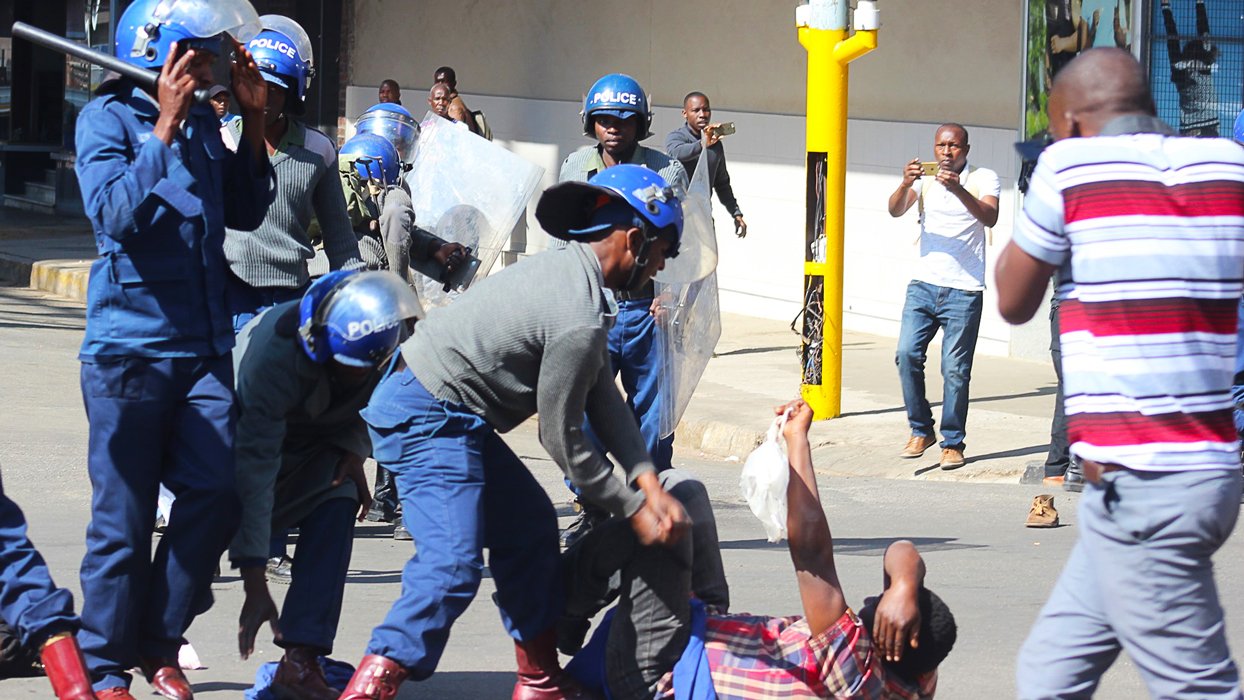Civilians in Zimbabwe can now report misconduct by their police and the army under a new law.
The legislation was borne out of the recommendations made by the commission that investigated post-election violence in 2018.
Former South African president Kgalema Motlanthe led the commission.
On 1 August 2018, demonstrators took to the streets of Harare, demanding the release of election results from a few days earlier. The protest turned into a riot, which the police and army violently suppressed. Six people were killed by gunfire, 35 were injured, and significant property damage occurred.
Following allegations that the security services used excessive force to suppress the riot, South Africa’s then president Jacob Zuma established a commission of inquiry to investigate the circumstances leading up to the riot, the conduct of the police and army in suppressing it, and whether the use of force was proportionate.
Before then, there was no accountability from the security services in Zimbabwe despite the 2013 constitution having provisions for such a law.
Four years after the Motlanthe commission recommended the law, Zimbabwe’s President Emmerson Mnangagwa has come up with the Zimbabwe Independent Complaints Commission Act.
The commission, guided by the Act, will “investigate any complaint made by any person on his or her behalf against any misconduct on the part of a member of a security service in the discharge or purported discharge of the member’s functions”.
The commission will be tasked to provide an independent and impartial mechanism for investigating security service misconduct.
The security sector in Zimbabwe is heavily politicised and aligned with the ruling party Zanu-PF.
Since the November 2017 putsch that dislodged the late Robert Mugabe, the army crept out of the barracks to become an active player in the country’s political affairs.
Civil-military relations are at an all-time low.
The new law will seek to divorce the security sector from active politics.
The law states:
State brutality
In August, a Harare court instructed the army to compensate Zakeo Mutimutema, a victim of army shootings.
Mutimutema lost his eyesight in August 2018 during the election riots.
Before him, there was Rossie Munetsi, the wife of Peter Munetsi, a Central Intelligence Officer murdered during the November 2017 coup. Mrs Munetsi successfully sued the state over her husband’s death.
Under the new law, ushering the commission of inquiry into state security conduct, many like Mutimutema would be protected.
“Any death as a result of actions of any member of the security services, unjustified discharge of an official firearm by any member of a security service, rape by a member of the security service, whether the member is on or off duty, rape of any person while that person is in the custody of a security service, the torture or assault against any member of a security service in the execution of the member’s duties,” the law states.
Zimbabwe heads for polls next year before 31 July, and there are fears of heightened political violence. However, such a law could keep the army at bay.
News24
